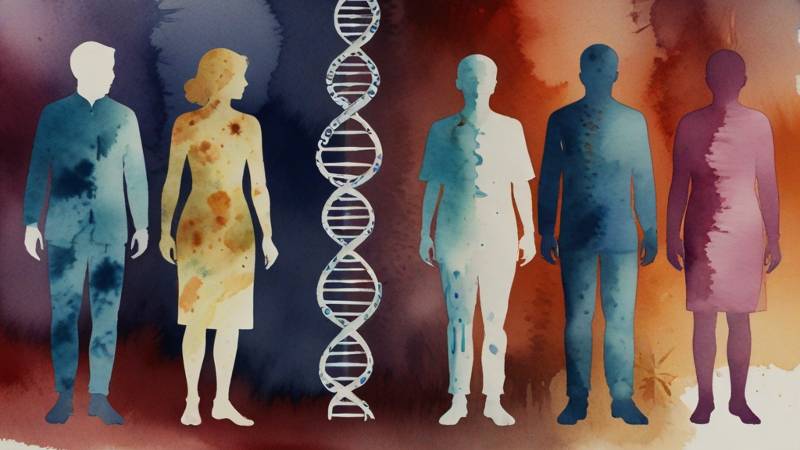Discrimination may speed up the biological processes of aging, according to a new study led by researchers at the NYU School of Global Public Health. The research, published in the journal Brain, Behavior, and Immunity-Health, links interpersonal discrimination to changes at the molecular level, revealing a potential root cause of disparities in aging-related illness and death.
Adolfo Cuevas, assistant professor in the Department of Social and Behavioral Sciences at NYU’s School of Global Public Health and senior author of the study, said, “Experiencing discrimination appears to hasten the process of aging, which may be contributing to disease and early mortality and fueling health disparities.”
Measuring the Impact of Discrimination on Aging
To better understand the connection between discrimination and aging, Cuevas and his colleagues looked at three measures of DNA methylation, a marker that can be used to assess the biological impacts of stress and the aging process. Blood samples and surveys were collected from nearly 2,000 U.S. adults as part of the Midlife in the United States (MIDUS) study, a longitudinal analysis of health and well-being funded by the National Institute on Aging.
Participants were asked about their experiences with three forms of discrimination: everyday, major, and workplace. The researchers found that discrimination was linked to accelerated biological aging, with people who reported more discrimination aging faster biologically compared to those who experienced less discrimination.
Health Factors and Racial Differences
A deeper analysis showed that two health factors—smoking and body mass index—explained roughly half of the association between discrimination and aging, suggesting that other stress responses to discrimination, such as increased cortisol and poor sleep, are contributing to accelerated aging.
The link between discrimination and accelerated biological aging varied by race. Black study participants reported more discrimination and tended to exhibit older biological age and faster biological aging. However, White participants, who reported less discrimination, were more susceptible to the impacts of discrimination when they did experience it, perhaps due to less frequent exposure and fewer coping strategies.
“These findings underscore the importance of addressing all forms of discrimination to support healthy aging and promote health equity,” added Cuevas, who is also a core faculty at the Center for Anti-racism, Social Justice, & Public Health at NYU School of Global Public Health.
The study’s findings highlight the need for a multifaceted approach to addressing health disparities, one that takes into account not only individual behaviors but also the social and structural factors that contribute to chronic stress and accelerated aging.


